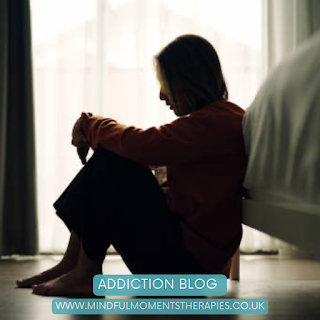Adverse Childhood trauma
Adverse childhood experiences (ACEs) are traumatic events that occur during childhood and have far-reaching negative consequences that can impact various aspects of an individual's life. These experiences can include physical, emotional, or sexual abuse, neglect, witnessing domestic violence, parental substance abuse, mental illness, or incarceration. In this weeks blog I’m exploring the effects of ACEs on everyday life, relationships, mental health, wellbeing, addictions, habits, and lifestyle. Furthermore, it will explore measurement strategies for ACEs and discuss potential interventions to overcome their adverse effects.
Childhood trauma has a far reaching impact into adulthood, affecting choices, decisions and behaviours. Often rooted in the deep seated past of our environment and upbringing as a minor. Older generations overlook this impact and struggle on regardless, thankfully today Ace is a very significant understanding of adult difficulties and struggles. Whilst ACE cannot be deleted, it can be managed and supported with Mindfulness and long term therapy.
ACEs can interfere with cognitive development, leading to difficulties in attention, memory, and learning. Which can negatively impact academic performance, leading to lower grades, increased absenteeism, and higher dropout rates.
ACEs can manifest as chronic health issues, such as obesity, heart disease, diabetes, and autoimmune disorders. ACEs can perpetuate a cycle of poverty, with long-term consequences for economic opportunities and stability.
ACEs can disrupt the development of secure attachments, impacting relationships throughout one's lifespan. Leading to difficulties in developing and maintaining healthy relationships, including challenges in establishing trust and forming intimate connections.
ACEs can affect parenting skills, causing parents to struggle with nurturing and providing a safe environment for their own children.
ACEs can impede the development of essential life skills, leading to difficulties in finding and maintaining employment and stability.
ACEs increase the risk of developing PTSD, resulting in intrusive memories, hyperarousal, and avoidance behaviour. Leading to anxiety, stress and mental health issues that remain unresolved and not acknowledged as a source of trauma. ACEs are strongly associated with depression and anxiety disorders, with individuals experiencing persistent feelings of sadness, hopelessness, and worry. ACEs can contribute to the development of personality disorders, leading to difficulties in maintaining stable relationships and coping with life's challenges. ACEs can hinder the development of a positive self-image, resulting in low self-esteem and diminished self-worth.
ACEs can disrupt the ability to regulate emotions, leading to difficulties in managing stress and coping with everyday challenges. ACEs can impair the development of resilience and healthy coping strategies, making it challenging to bounce back from adversities. ACEs can affect the development of a strong sense of identity, potentially leading to feelings of confusion, lack of direction, or identity crises.
ACEs can contribute to substance abuse as individuals try to cope with painful memories and emotions.ACEs increase the risk of developing addiction, as the brain's reward system may become dysregulated due to trauma. ACEs are closely linked to the occurrence of mental health disorders alongside substance abuse problems (i.e., dual diagnosis). ACEs can lead to engaging in risky behaviors, such as unsafe sex, reckless driving, or self-harm. ACEs can prompt individuals to develop maladaptive coping mechanisms, including aggression, self-isolation, or reliance on unhealthy relationships.
ACEs can perpetuate cycles of abuse, as individuals may replicate the behaviour they experienced during their childhood.
ACEs can be measured through validated questionnaires, such as the Adverse Childhood Experiences (ACE) Questionnaire, which assesses exposure to various childhood traumas. Mental health professionals can conduct interviews to elicit information about the presence and impact of ACEs on an individual's life. Medical records and reports can provide valuable information regarding past traumas or events experienced during childhood.
Adopting trauma-informed practices within healthcare, education, and social service systems to create safe and supportive environments for those affected by ACEs. CBT can help individuals identify and challenge negative thought patterns and develop healthier coping strategies. EMDR or IEMT can be effective in processing traumatic memories and reducing their impact on daily life.
EFT tapping is effective with supporting the emotions from Ace trauma, and helping to support the emotional memory. Breathwork is also a valuable tool to bring the body back into its window of tolerance and out of its trauma response.
Connecting individuals who have experienced ACEs can create a support network and facilitate shared healing experiences. Encouraging positive relationships and help-seeking behaviours can enhance resilience and foster protective factors.
Raising awareness about ACEs and their impacts to reduce stigma, facilitate early intervention, and offer appropriate support. Providing resources and educational programs to parents, supporting positive parenting practices, and creating safe and nurturing environments for children.
Adverse childhood experiences have severe and lasting effects on everyday life, relationships, mental health, wellbeing, addictions, habits, and lifestyle. Given their significant impact, it is crucial to identify and address ACEs promptly. By utilizing appropriate measurement tools, implementing therapeutic interventions, and promoting resilience and protective factors, individuals who have experienced ACEs can begin the journey towards healing, recovery, and healthier lives.
Do contact me if you have been affected by this weeks blog and would like support or to discuss it further.
If you feel you would like support, and you feel therapy may be the answer. I offer 15 minute free insight calls, for you to have the chance to discover how therapy might support you. Visit my website for more information.
www.mindfulmomentstherapies.co.uk
Or email
phiona.hutton@btinternet.com
You can also follow my socials
@mindfulmomentstherapies
On
Or listen to my podcast
https://www.buzzsprout.com/2182222/episodes
You can now read and subscribe to my monthly newsletter with the link below
https://mailchi.mp/947d6d80b2dc/june-newsletter
For tips, support, suggestions and offers. Helping you to bring balance to your mind and wellbeing.
Call today for a new tomorrow.




Comments
Post a Comment